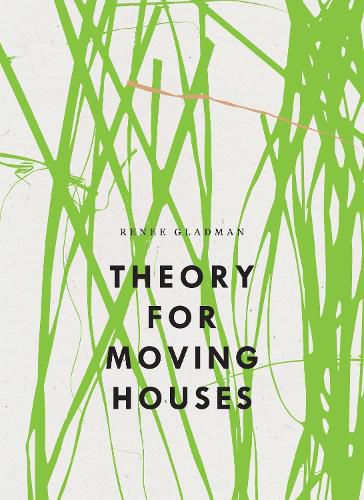Readings Newsletter
Become a Readings Member to make your shopping experience even easier.
Sign in or sign up for free!
You’re not far away from qualifying for FREE standard shipping within Australia
You’ve qualified for FREE standard shipping within Australia
The cart is loading…






You are asking me where I live and it's making me think all these things about space,where I start and end in space and where space starts and ends in me and when, inspace, I am a body and when I'm a book, in space.
So begins Renee Gladman's Theory for Moving Houses, and with these lines we are invited into a liminal space of imagination and investigation, as Gladman guides us through the architectures of her poetics. Foundational here is a sense of fluidity, a slippage of time, a devotion to "non-linear and hyper gestural movement," a communal spirit. Her inquiry into her intersecting practices of writing and drawing reveals a deep commitment to uncertainty and "fictional knowing." Yet again, Gladman upends traditional expectations of prose, as she leads us through landscape of her Ravicka series novels, ultimately surprising us with a novel within nonfiction. The latest volume in Wave's Bagley Wright Lecture Series, Theory for Moving Houses is not only visionary it its contemplations but also is a virtuosic example of the ways in which language can shape utopian sites of possibility.
$9.00 standard shipping within Australia
FREE standard shipping within Australia for orders over $100.00
Express & International shipping calculated at checkout
Stock availability can be subject to change without notice. We recommend calling the shop or contacting our online team to check availability of low stock items. Please see our Shopping Online page for more details.
You are asking me where I live and it's making me think all these things about space,where I start and end in space and where space starts and ends in me and when, inspace, I am a body and when I'm a book, in space.
So begins Renee Gladman's Theory for Moving Houses, and with these lines we are invited into a liminal space of imagination and investigation, as Gladman guides us through the architectures of her poetics. Foundational here is a sense of fluidity, a slippage of time, a devotion to "non-linear and hyper gestural movement," a communal spirit. Her inquiry into her intersecting practices of writing and drawing reveals a deep commitment to uncertainty and "fictional knowing." Yet again, Gladman upends traditional expectations of prose, as she leads us through landscape of her Ravicka series novels, ultimately surprising us with a novel within nonfiction. The latest volume in Wave's Bagley Wright Lecture Series, Theory for Moving Houses is not only visionary it its contemplations but also is a virtuosic example of the ways in which language can shape utopian sites of possibility.